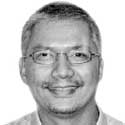
Courtside
By Anthony L. Cuaycong

Novak Djokovic didn’t do himself any favors by doubling down on his refusal to get inoculated against the COVID-19 virus. To recall, his unvaccinated status led to his deportation from Australia last month, costing him the opportunity to defend his Australian Open title and handing the provisional lead in number of career Grand Slam victories to rival Rafael Nadal. Yet, it’s clear from his wide-ranging interview with BBC last Tuesday that he believes he’s in the right to keep refusing the vaccine.
In light of the development, not a few quarters have seen fit to cite the strength of Djokovic’s conviction. In truth, there is nothing courageous about what he insists on. The overwhelming preponderance of scientific fact on the benefits of inoculation, plus the untold risks he places others in by remaining unvaccinated, place him on shaky ground. It doesn’t matter if he has expressed willingness to forego the chance to claim more major championships. He’s a global citizen; he doesn’t live in a bubble.
Why Djokovic insists on staying unvaccinated, only he knows. At best, he’s being disingenuous when he says he’s not part of the anti-vax movement, and yet refuses to get jabbed. He’s also being duplicitous when he claims to acknowledge the science behind vaccination, and yet doesn’t want to touch it with the proverbial 10-foot pole. It wouldn’t be a problem if his stubbornness is costing no one but him. Unfortunately, all and sundry are affected.
Make no mistake. Djokovic deserves to tap his talents on the court, and fans deserve to see him at his finest. He’s World Number One for a reason. That said, no one deserves to be placed at risk as a result of his decision. And because he’s a household name, his voice carries not inconsiderable weight. Imagine if he uses it to do good. Instead, he’s exercising his right to be wrong. Which is just too bad. Saying the world is flat with confidence isn’t valorous. It’s just plain stupid. Enough said.
Anthony L. Cuaycong has been writing Courtside since BusinessWorld introduced a Sports section in 1994. He is a consultant on strategic planning, operations and Human Resources management, corporate communications, and business development.